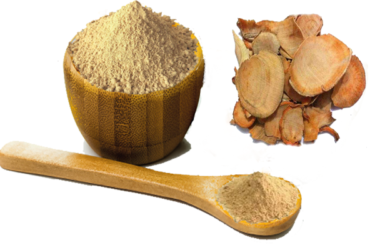How many times can you recall that on a gloomy day, as soon as you ate something delicious, you instantly felt better? This isn’t all coincidental. There are studies that show how a good diet is linked with better mental health. Yes, the kind of good diet that will be addressed in this blog doesn’t include junk food sadly, but it does talk about how working on consuming healthy food can do wonders for you.
In fact, eating well can also help you study. Think about it – is it possible to do well in school when your mental health is poor? Of course, it isn’t! So, if you aren’t already careful of what you eat, read on to see how important diet is for you.
How does it work?
Plenty of you have probably heard numerous times how good food is important for your mental health, but do you know how it actually works? Let’s talk about science. The human gut almost acts as another brain. There are bacteria in the gut that are responsible for sending signals to the brain via neurotransmitters. So naturally, when the bacteria get healthy food, they automatically boost positive neurotransmitter signal production in the brain, which transfers to a happy individual.
So you see, a healthy diet can actually influence our mood, our attention span, and even how alert we are during different times of the day. Neat stuff, isn’t it?
What to avoid
Now, here is the part that most of us struggle with: eating things that are bad for us. Despite how delicious these things are, it is best to cut down as much of this as possible so as to rewire your brain into preferring healthy alternatives.
- Sugar
White processed sugar is one of the worst things you can have in your diet. The thing with these no-no foods is that they give such a ‘feel good’ sensation after consumption because the brain produces dopamine during the process. However, the rush is short lived. This leads us toward sudden crashes, which do more to spoil our mood than they do to uplift it.
- Processed foods/junk food
Who doesn’t love a quick yummy fix? In truth, processed foods are super unhealthy if they are a big portion of your daily diet. Just like sugar, the brain is wired to feel good after consumption of these foods and so we run back to them every time hunger strikes. They can cause inflammation within the body, which is a mood killer. So, try to eat less of this stuff.
What to eat
Here are some things you should train yourself to get used to, because not only are they healthy, but they are also good for the brain.
- Fiber
Not only does fiber keep your digestion regular, but it also reduces the intensity of sugar highs and lows that we experience after consuming it. Fruits, vegetables, grains, beans, etc., are very good sources of fiber that you should eat.
- Wholefoods
The less processed a food item is, the better. While getting organic food is very difficult for some people, there are things you can eat that are better alternatives to overly processed foods. Fresh fruits and vegetables are a good idea to start with in terms of wholefoods.
- Vitamins
Folate is a type of vitamin B that is responsible for boosting dopamine production and hence positive feelings in the brain. Many greens, cantaloupes and lentils have this amazing vitamin. Other than that, vitamin D is also a very good thing to incorporate in the diet as it boosts the production of serotonin. You can find plenty of it from sunlight (be sure to wear sunscreen when out) and in foods such as mushrooms.
- Minerals
Magnesium is also a very important mineral not only because of the health benefits but also because of its effect on the mood. Gut bacteria need plenty of it to function well. You can find it in dark chocolate, bananas, cacao nibs, beans, spinach, etc.
- Protein, fatty acids and carbs
Lean protein can do wonders for your brain. Other than meat, you can find it in eggs, soybeans, nuts and seeds. Fatty acids are responsible for maintaining the nervous system, so make sure to chomp on fish, meat, eggs, nuts and flaxseeds. Complex carbohydrates are great energy sources. Brown rice, vegetables, quinoa, sweet potato, etc., are good sources.
This information is especially crucial for students who need all the energy they can get to do well in school. If you are overburdened with work and can’t manage school despite eating well, then consider opting for remote programs. You can join Baylor University Online and choose from the variety of well-rounded courses that it offers.
Keep in mind that eating healthy shouldn’t feel like a prison. It is okay to indulge in some guilty pleasures every now and then just to stay motivated and to enjoy life. Just be sure to know your limit. You will find that many nutritionists and fitness experts actually recommend having cheat days and meals so that you can reward yourself for all the hard work. The goal is to take care of your mental health, right? There is no point eating healthy if it becomes a looming dread for you rather than being something that you want for yourself.
Conclusion
Eating healthy isn’t going to be easy, especially if you aren’t used to it. It will take a lot of patience and effort to make it a lifestyle, but once it sticks, you won’t want to return back to eating poorly. All you need to do is know what sort of foods you have to stay away from and what foods you need to eat. With some practice and dedication, you can do it. Your mental health is worth the effort.













